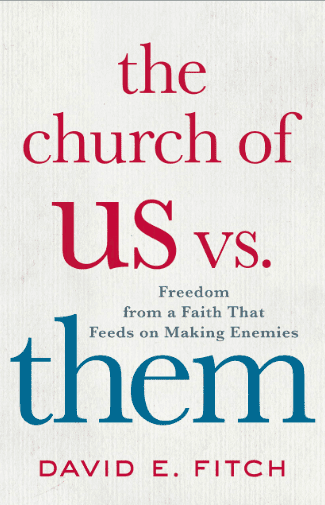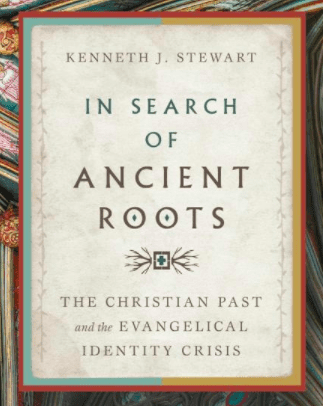 An adjective seems necessary because the word “evangelical” is used by so many types. We’ve got conservative evangelical and progressive evangelical and European evangelical and moderate evangelical and charismatic evangelical. The need for an adjective doesn’t bode well for the word evangelical — it’s gotten too big for its britches. For two decades or more I was on the search for the purest and best kind of evangelical, a search that is unattainable (so I think now), but that search means I’m always open for yet one more try.
An adjective seems necessary because the word “evangelical” is used by so many types. We’ve got conservative evangelical and progressive evangelical and European evangelical and moderate evangelical and charismatic evangelical. The need for an adjective doesn’t bode well for the word evangelical — it’s gotten too big for its britches. For two decades or more I was on the search for the purest and best kind of evangelical, a search that is unattainable (so I think now), but that search means I’m always open for yet one more try.
It’s here: Bruce Benson, Malinda Berry, and Peter Heltzel now propose Prophetic Evangelicals: Envisioning a Just and Peaceable Kingdom (Eerdmans, 2012). Different groups of evangelicals migrate toward specific terms as those that best express their theology: so when you see justice, peace, shalom, kingdom, prophetic, reconciliation, the poor, the public, Jubilee… you know what you’ve got is a progressive evangelical that is gathering itself under the term “prophetic.” This gathering, of course, suggests that other forms of evangelicalism are not prophetic, a term that beggars careful definition (and that means mapping the message of the prophets and not just their critique of the powers), but this connection — progressive and prophetic — is one of the main forms of evangelicalism, and had this book been six months later or so it could have interacted with our Book of the Year, David Swarz’s Moral Minority.
Is this use of “prophetic” a new way of saying “progressive”?
This book is the first in a series on Prophetic Evangelicalism, so the three co-authors open with two substantive essays mapping prophetic evangelicalism: one on the vision for a peaceable and just kingdom society and one on the improvising needed for a kingdom vision to be embodied in our world. There are then a number of essays on themes that matter for prophetic evangelicalism: creation, shalom, justice, kingdom, news, Mary, cross, church, freedom, reconciliation, resurrection, hope, and then the co-authors finish it off with Living Shalom.
The two essays propose the following ideas:
1. Prophetic Christianity is both proclaimed and embodied, it is both personal and public.
2. Prophetic Christianity focuses on the poor and marginalized.
3. Prophetic Christianity’s examples include Charles Finney, Jonathan Blanchard, Sojourner Truth, Harriet Tubman, Carl F.H. Henry, and (especially) Martin Luther King Jr.
4. Prophetic Christianity does not distinguish a message for Israel from a message for America; in other words, there is little concern here with a hermeneutic that sees Israel coming to fufillment in the church (both Jews and Gentiles) rather than in America. In other words, Prophetic Christianity is about a public, social ethic on the part of Christians.
5. Prophetic Christianity seems to see kingdom as the public sector acts of compassion on the part of Christians. The relationship of kingdom and church is not defined, though the authors are most critical of Hauerwas, whom they think has an ethic that does not care for the poor. The issue, as I read Hauerwas, is not an ethic for the poor but how best to care for the poor: Prophetic Christianity sees this as public action while Hauerwas’ framework pushes this into actions the church does. They appeal more approvingly of Yoder, but they do not seem to strike his balance of what he calls “middle axioms” as the way the ecclesia engages in public justice and peacemaking.
6. Prophetic Christianity will strive at racial reconciliation.
7. In spite of their emphasis of the importance of defining justice, I don’t think they get to the core idea of “moral behaviors and social conditions that conform to God’s will, as revealed in Torah and then in Jesus and the ethic of the Spirit.” For them justice is largely defined by its manifestations — peace, reconciliation, etc. They need to focus on the standard, because justice (tsedek, dikaiosyne, etc) is defined by conformity to a standard, and until that standard is spelled out there is no justice.
8. If I picked one thematic statement this is it: “Taking up one’s cross means to surrender oneself to the worldly struggle for justice, bearing the suffering of others, even at the cost of one’s own life” (28). If I picked a second it would be this one: “Liturgical celebrations at Sabbath worship initiate us into the strange space and time of the kingdom of God, but the real kingdom work begins when Christians are sent out through the holy benediction to live, embody, and experiment as new creation community” (36). In other words, real kingdom work is public justice.
9. Prophetic Christianity then is a Christianity that cares for the common good.
10. Prophetic Christianity, then, is another adjective for Progressive Christianity.










